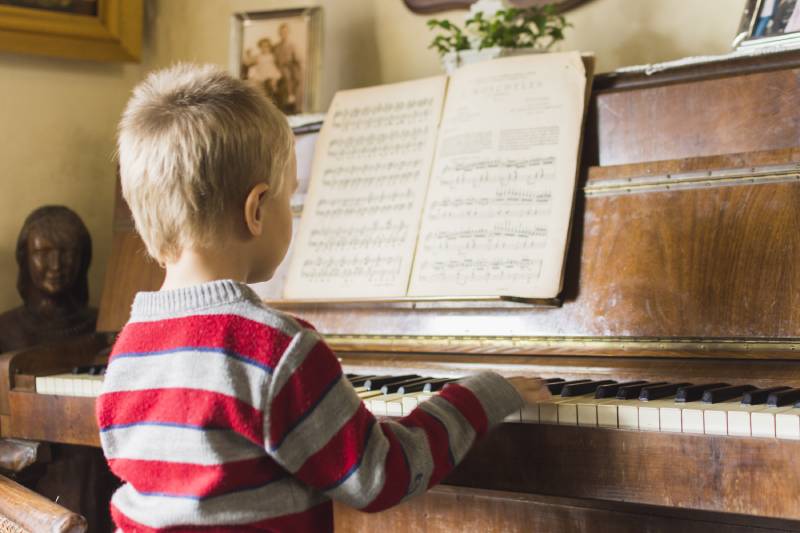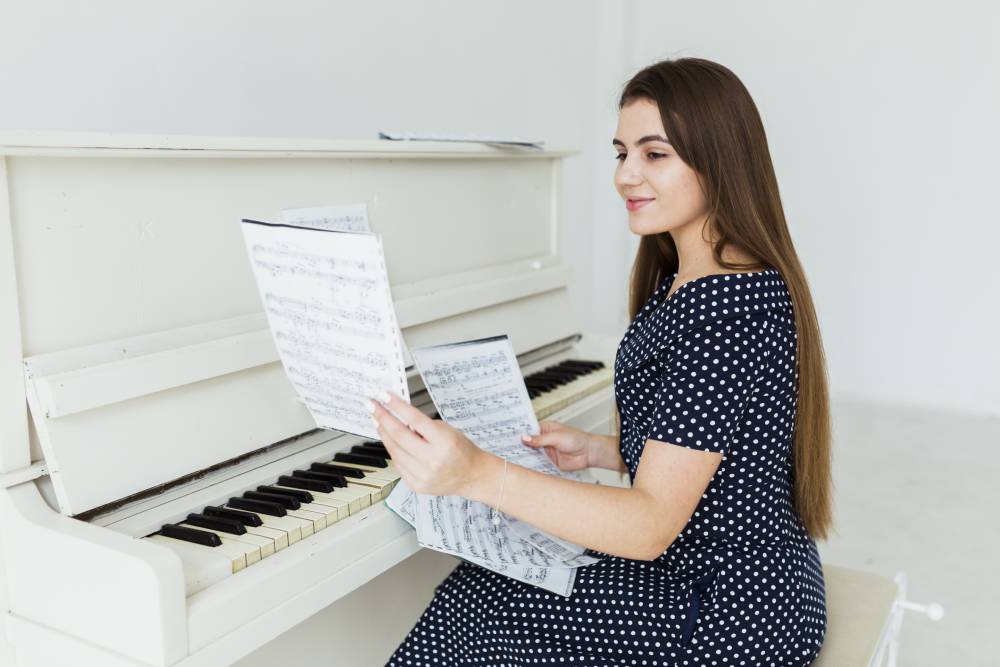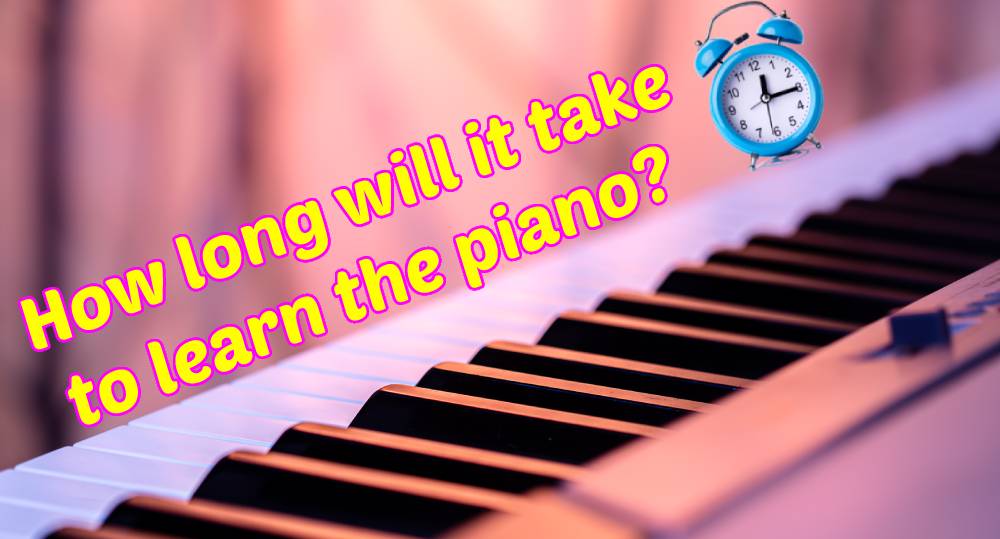
Are you looking to become a professional pianist? Piano playing professionally is the dream of many, yet few achieve it. In this article, we will discuss “How long to learn piano.” Visit instrumentBuzz for instructional information about piano lessons and learning instruments.
The simple answer to this question is that the more time and energy you devote to the piano, the faster you will learn. However, if you ask a professional pianist, they will ask you a number of questions first. For example, what is your current level as a pianist? how much time do you spend practicing? Are you taking piano lessons? What level of professionalism do you want to achieve?
Factors That Determine “How Long Will You Take Learning Piano.”
According to most piano teachers, The following factors play an important role in determining how long it will take you to learn piano.
Practice
We all have heard the famous old saying that, “Practice makes perfect.” Therefore, according to these golden words, how often you practise determines how quickly you will progress. The 10,000 hour rule popularized by Malcom Gladwell can be a good rule of thumb.
What’s important to highlight is that the quality of your practise time is the most important factor. For example, practicing one hour is of little use if you don’t practice well. However, 20 minutes of regular, deliberate practise may be enough to steadily improve your piano skills.
Talent
Talent is a God-gifted feature in some people. If you are a talented pianist, then you might take a surprisingly short time to learn. However, if this isn’t the case, don’t get disheartened. Instead, simply work hard and practise smartly, and you will certainly improve your skills. Work on developing a Growth mindset.
Love For Music
Love is something that can make anything possible. And when it comes to music, learning speed multiplies if your practise with your heart. If you play piano for the right reasons, then your chances of becoming an expert improve greatly.
Age
You might have heard that young minds pick up new things faster than older ones. While this is true to a certain extent, the reality is that people of different ages learn things differently. Young people often pick things up through a process of osmosis, without really trying. While older people often learn better because of greater levels of discipline and improved organizational skills. For ex, better practising habits.
Piano Teacher
Your teacher plays a very important role in determining the time it will take you to learn piano. A well-trained piano teacher knows how to deliver the right materials and techniques to their students at the right time. This greatly enhances motivation and helps students progress quickly.
An experienced teacher will also help you learn better practising habits and half your practice sessions with the same results. According to most pro pianists, quality and consistent practice is the key to success.
Time Availability
Last but not least, time availability also matters a lot. If you have enough time to manage regular piano lessons and practice sessions, you will learn faster.
Different Stages of Learning the Piano
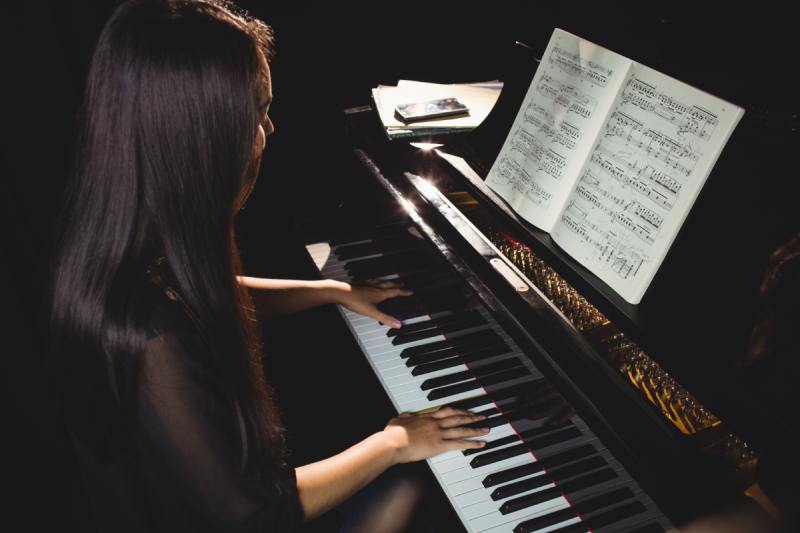
To help you understand the learning process, we have divided piano learning into four different stages.
The Basic Stage
The basic stage is when you are a complete beginner in the early stages of piano playing. At this stage, you learn to play several simple one-handed melodies.
It is an elementary stage of learning, and many learners will pass through this stage in a couple of weeks only.
30 minutes of daily practice is enough for a beginner to pass this stage in several weeks. However, piano students with a musical background can pass this stage very quickly. We can also name this stage the “Unconscious Incompetence Stage” because at this stage “one doesn’t know what they don’t know.”
The Intermediate Stage
We can name the intermediate stage the “Conscious Incompetence Stage.” At this stage, one becomes aware about what he/she needs to learn. Such as, which skills and abilities are required to improve piano playing.
At this stage, you realize how bad you actually are. This is because you have become aware of the mistakes you are making while playing. This is part of the learning process, you must first be aware of your shortcomings before you can fix them.
To get past this stage of conscious incompetence, it may take you five to ten years. The time may fluctuate based on the factors mentioned above in the article. The piano skills you develop at this stage include rhythm, tone, speed, fluency, reading, and much more.
The Advanced Stage
We may call this stage “Conscious Competence.” Competence is when you have enough skill to perform something successfully. At this stage, you are very aware of the progress you’ve made and how you get here.
The Pro Stage
The pro stage comes when you can play piano without even realizing you are doing something difficult. We call this stage, “Unconscious Competence” when you stop thinking if you are playing right or wrong. You enter a state of flow when you play and even wrong notes don’t derail you.
Piano Learning Skills
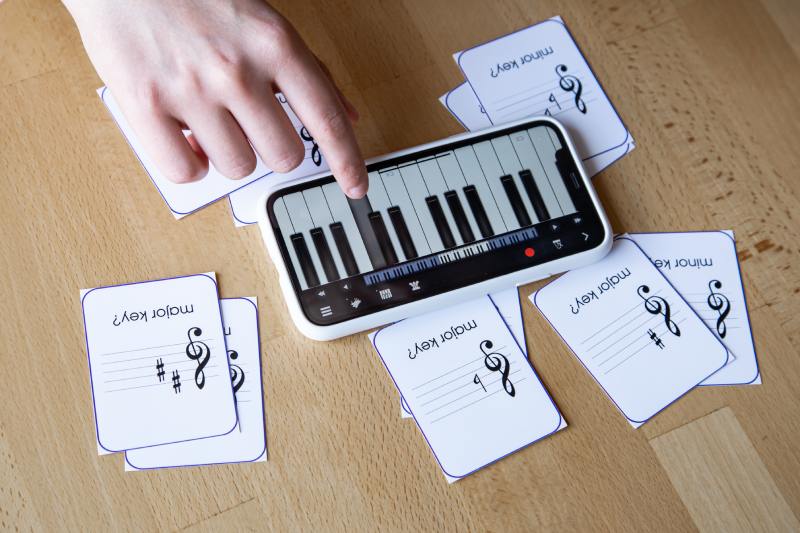
Just like we divided piano learning into different stages, we can also classify it by skills. Learning piano is in fact a combination of many different skills. Some skills will come easier to you than others. To master the piano, you must develop them all. Let’s dive into the details.
Sight Reading
Sight-reading is when a musician plays a new piece by simply reading the sheet music. Learning to read music is slow process and is similar to reading a book. People that are visual, often have less difficulty reading music.
Playing By Ear
Playing by ear is a very natural way of playing. It engages different parts of your brain beyond our eyes. It’s often easier to feel the music and express the right emotions, because you are not distracted reading notes on a paper.
Playing by ear means either memorizing a piece from paper, or figuring out a song or melody note by note. To improvise well, you must be able to play by ear.
Music theory
Understanding music theory will help you learn faster because it will enhance your mental representations. The more you understand the theory of what you are playing on the piano, the faster you will learn. This is because you will be able to better categorize the various elements of a piece in your mind and connect the different the elements together.
For example, if you are playing a song in the key of C, you will know that there are no sharps and flats in that key. Therefore, when you read a series of notes, you will be able to understand which notes you need to play more quickly.
Rhythm
Rhythm has to do with the timing of your piano playing. Rhythm is often the hardest and most overlooked element of playing the piano, but perhaps the most important. To improve your sense of rhythm, it is important to work on rhythm sight reading exercises, practising with a metronome, and learning to count the various subdivisions such as quarter, eighth, and sixteenth notes.
Speed
Playing fast require learning piano technique. This is often achieved through practising scales and arpeggios. When learning technique, It’s important to think about how you are doing what you are doing. Therefore, what’s most important about practising scales, is learning the proper technique for it. An experienced teacher is essential for this.
FAQs for the article
How long does it take to teach yourself the piano?
The time needed to learn piano depends on what level you want to achieve. There are different stages of piano learning, such as the basic stage, intermediate stage, advanced stage, and pro stage. To be a pro pianist, it will require 10 000 hours of deliberate practise.
Is it hard to learn piano?
If you have a musical background or have previous experience with any musical instrument, learning piano will come easier for you. Learning piano might be harder depending on your age.
Can I learn piano in a year?
It’s not possible to become a piano expert in one year. However, you can learn some basics about the piano, such as the chords and some simple patterns. If you are a quick learner, you might also learn some simple songs such as chopsticks and Fur Elise.
Is piano easier than guitar?
Learning any instrument is challenging. That being said, each instrument has a different learning curve. It is easier for a beginner or a young child to learn the piano than the guitar. This is because playing a note on the piano is just like pressing a button. Creating a note on the guitar on the other hand, requires more skill and effort.
Final words
The above article was all about ” How long to learn piano.” As you might have understood, there is no standard amount of time required to learn the piano. Everything depends on your love for the piano and the time you give to practising.
For different level learners, there are different estimated time periods. However, these might alter if you are above or below the average learner. A quick learner with previous piano experience will learn much quicker than someone who is just starting.
Don’t forget to share your piano learning experience with others in the comment section.
[vivafbcomment]
About Musiprof
Thank you for reading our blog article the 9 Piano Games for Kids to Make Learning Fun.
Musiprof is a Canadian Music organization that connects piano teachers to students in Montreal, Toronto and Vancouver.

